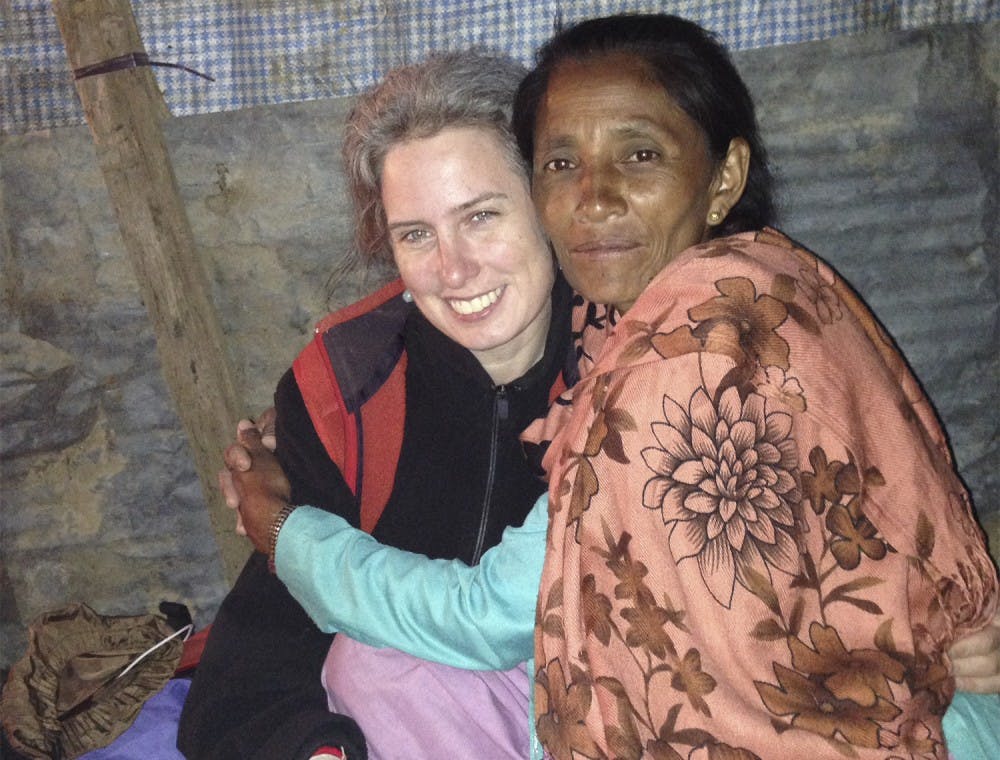UNC religious studies professor Lauren Leve was studying political transition and religion in Nepal when the 7.8 magnitude earthquake hit on April 25. Staff writer Shweta Mishra sat down with her after she returned to Chapel Hill.
The Daily Tar Heel: Where were you during the earthquake?
Lauren Leve: I was in my apartment, which was very close, probably 150 to 180 yards, from Durbar Square in Kathmandu. The quake was just before noon on a Saturday, which is amazing because if it had happened at night or if it had happened on a school day, many more people would have died.
DTH: Can you convey what it felt like?
Leve: At first I heard a noise. It was a loud, almost grinding, shaking noise — almost like a train. And then I started to feel the earth shaking. Basically, I took a couple of steps from where I was standing — which was near a mirror, when I realized that it was not a good place to stand — toward my bed area, which seemed safer. And it just threw me on the ground. Then I just huddled on the ground and wondered if the building was going to collapse on top of me. My landlords, who are on the other side of the wall, were in their kitchen, and they wanted to run out, but the door got jammed, and they ended up, the whole family, just huddling together holding each other in the kitchen, waiting to see what would happen.
DTH: What did you do after that?
Leve: I spent the first few days, like everyone else in the country, in a tent outside trying to figure out what was going on. As soon as it seemed safe to travel, I went out to Gorkha, near the epicenter, because that’s where I’d been doing research. That’s where I had relations with people. I didn’t have relief to bring with me, which was hard, but what I was able to do was go around and write down the names, how many families, what they’d lost, what they needed, how many kids they had, how many older people they had, how many sick — generating the kind of information that would allow aid to be distributed fairly and effectively. What really impressed me was even so quickly after the earthquake, even in the face of such unthinkable tragedy and mind-numbing loss, people were trying to put one foot in front of the other and generate some kind of way to live, some kind of security.
DTH: It makes sense that there would be tectonic activity there with Mount Everest, so why did this earthquake come as such a surprise?
Leve: In theory, the government and elites knew it was coming. On the highways and even in the gullies near where I lived, you’d see signs saying if there’s an earthquake, duck, cover, hold. Public service billboard things. But at the same time, nobody really wrapped their heads around it. Most people were far too poor to do anything to help themselves. The government can’t even get it together to write a constitution, let alone enact the kinds of reform and generate the kinds of money it would take to create greater security in a situation like that.




